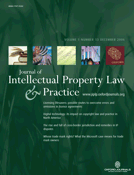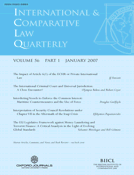India to Join Hague Conference to Protect a Married Woman’s Rights?
Reports today suggest that India may well sign up to the Hague Conference on Private International Law shortly. Overseas Indian Affairs Minister Vayalar Ravi, in a press conference on the eve of the Pravasi Bharatiya Divas (the global conference for overseas Indians) to announce a bill to grant voting rights to non-resident Indians (NRIs), also stated that,
Steps are also being taken by the ministry to ensure that Indian women getting married to NRIs are not exploited or abused.
Mr Ravi said India was likely to join the Hague Conference on private international law, to:
protect the interests of Indian women.
There were already rumblings at the Indian Society of International Law Conference a few weeks ago that India were considering it. The Indian Government’s consultation on “failed and fraudulent marriages” between Indian women and overseas Indian men has proved controversial in recent past; the National Commission for Women [NCW] New Delhi proposed a draft Convention for such marriages, which recommended, inter alia, that:
- Registration of marriage be made compulsory
- Bilateral agreements for protection of such marriages be concluded between India and such other countries where the Indian Diaspora is in large numbers.
- If the NRI husband has not become a citizen of the country, in which he resides, concerned Indian laws to apply irrespective of the place of the filling of the petition for dissolution of the marriage.
- Government monitored conciliation process of settlement of matrimonial disputes be initiated.
- Suppression of information regarding marital status by NRI grooms to be dealt with under criminal law and steps taken through extradition treaties wherever operational.
The matter was also discussed during Pravasi Bharatiya Divas 2005, with the general consensus being that:
- There should be comprehensive legislation so that there is legal remedy available to such girls. Special courts without legislation would be futile.
- Registration of marriages should be made compulsory in case of Overseas Indians. This will ensure compliance of conditions of a valid marriage. There will be complete proof of marriage and it would be a very strong deterrent for bigamous marriages.
- If a person abandons his wife, he should forfeit his property.
- Such instances may be made criminal offences.
- Overseas citizenship of such a person should be forfeited.
Joining the Hague Conference may well help matters, but it isn’t exactly clear which Conventions will be adopted to alleviate the difficulties facing NRIs. The ISIL report suggests that the Child Abduction Convention is the focus, as it would help the “high incidence of child removal” to and from the UK, US and Canada, by “returning children to the country of their habitual residence by a mutually reciprocal international arrangement between countries.” The report suggests that there could be more: “if India signs some of The Hague Conventions…Recognition of Indian marriages and divorces and reciprocally similar foreign instances would come to an International agreement.” One wonders how much of that is sheer optimism, however.
Private International Law matters were discussed yesterday at the Pravasi Bharatiya Divas 2007, with representatives from the Indian Parliament, the Indian Society of International Law and the Minister for Law and Justice in attendance. It will be interesting to see what they make of it all.

%5B3%5D.jpg)

